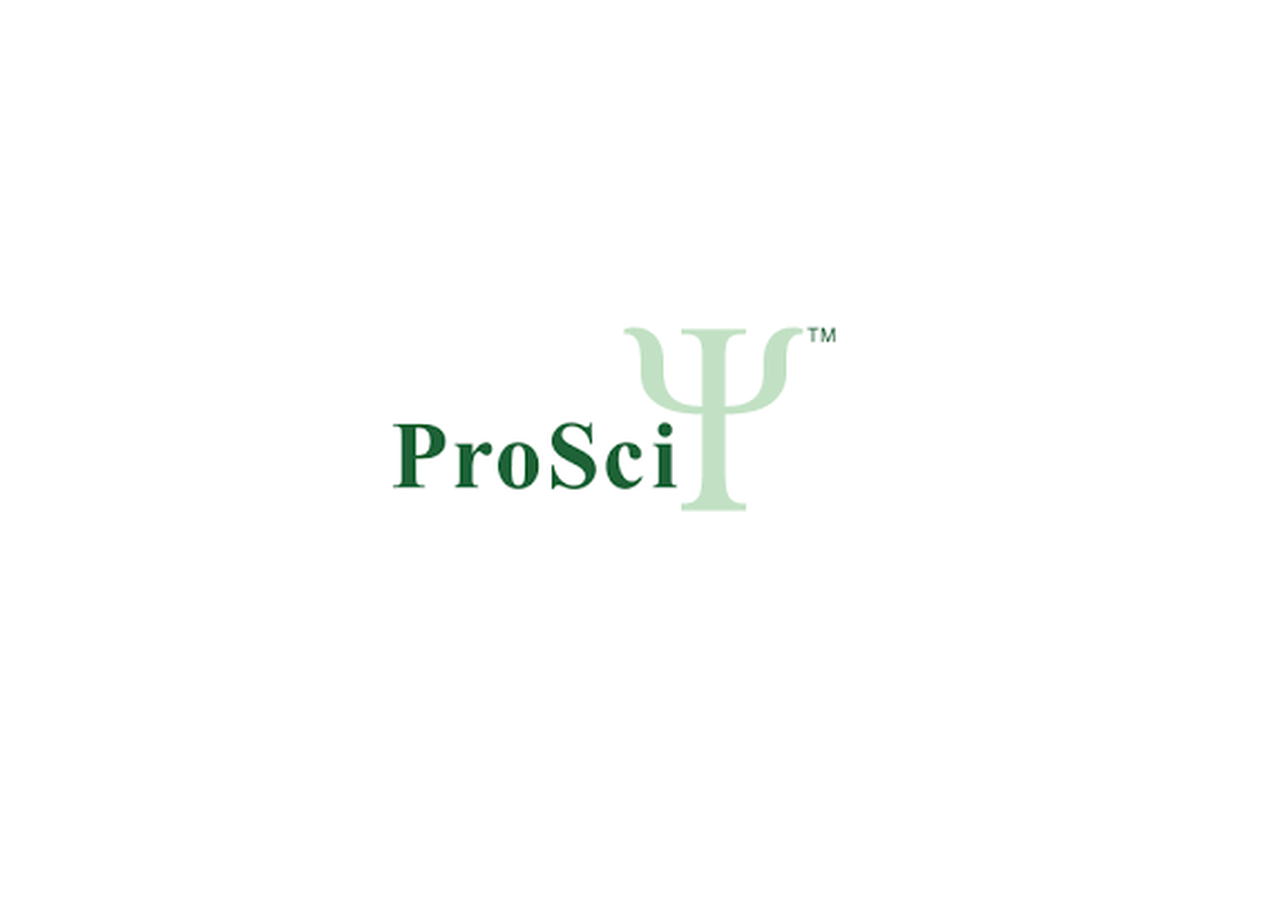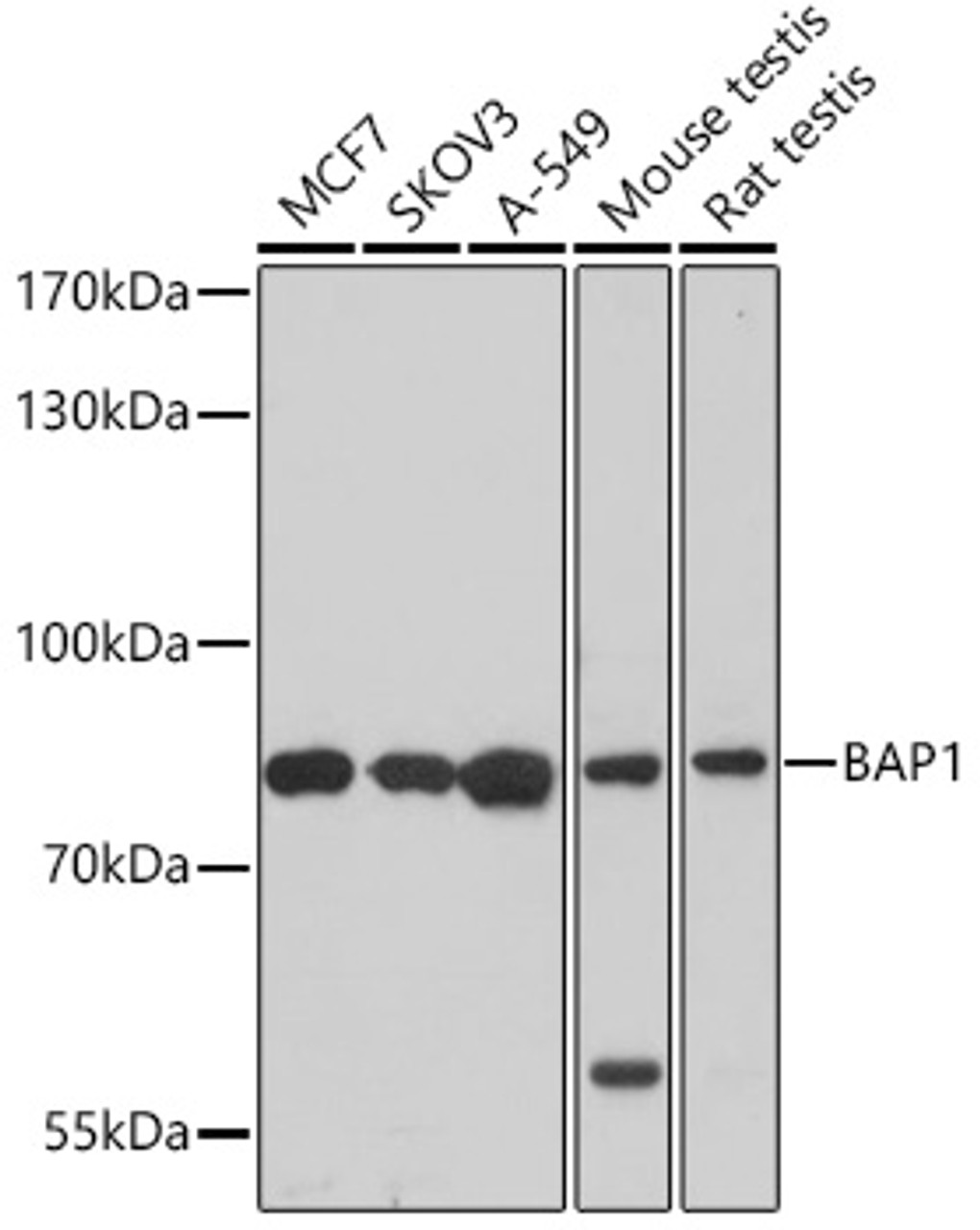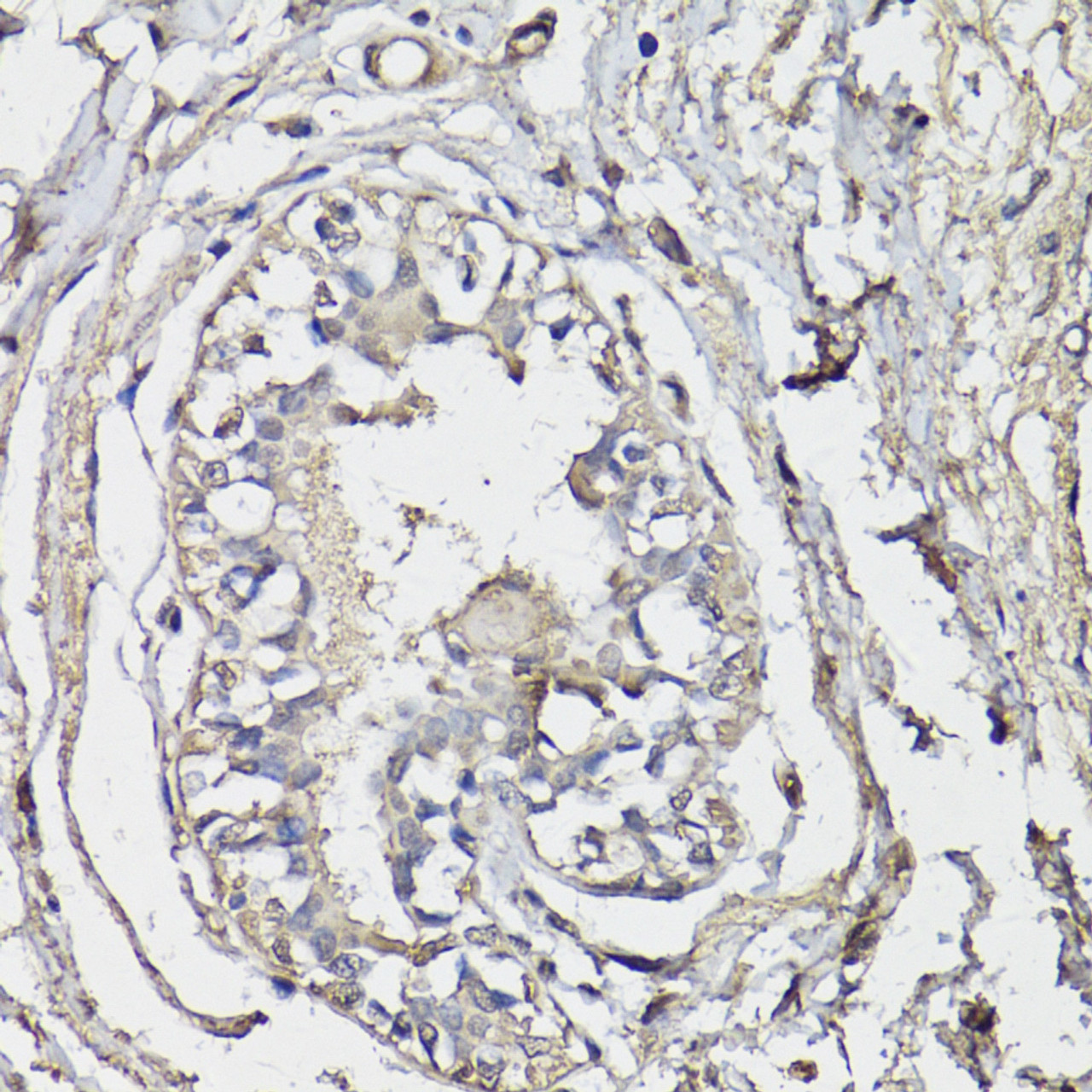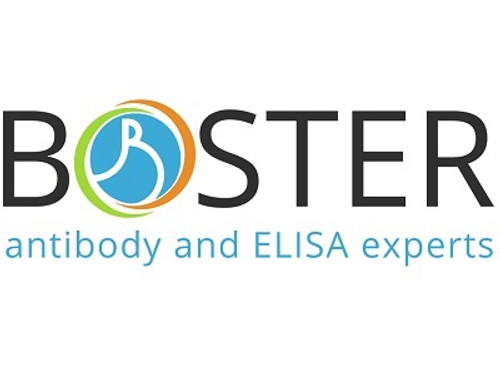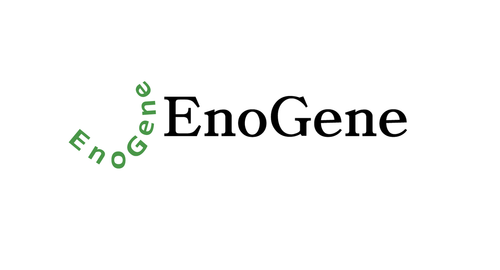Product Description
BAP1 Antibody | 22-291 | ProSci
Host: Rabbit
Reactivity: Human, Mouse, Rat
Homology: N/A
Immunogen: Recombinant fusion protein containing a sequence corresponding to amino acids 460-729 of human BAP1 (NP_004647.1) .
Research Area: Cancer, Cell Cycle
Tested Application: WB, IHC, IF
Application: WB: 1:500 - 1:2000
IHC: 1:50 - 1:200
IF: 1:50 - 1:200
Specificiy: N/A
Positive Control 1: MCF7
Positive Control 2: SKOV3
Positive Control 3: A-549
Positive Control 4: Mouse testis
Positive Control 5: Rat testis
Positive Control 6: N/A
Molecular Weight: Observed: 80kDa
Validation: N/A
Isoform: N/A
Purification: Affinity purification
Clonality: Polyclonal
Clone: N/A
Isotype: IgG
Conjugate: Unconjugated
Physical State: Liquid
Buffer: PBS with 0.02% sodium azide, 50% glycerol, pH7.3.
Concentration: N/A
Storage Condition: Store at -20˚C. Avoid freeze / thaw cycles.
Alternate Name: Ubiquitin carboxyl-terminal hydrolase BAP1, BRCA1-associated protein 1, Cerebral protein 6, BAP1, KIAA0272
User Note: Optimal dilutions for each application to be determined by the researcher.
BACKGROUND: This gene belongs to the ubiquitin C-terminal hydrolase subfamily of deubiquitinating enzymes that are involved in the removal of ubiquitin from proteins. The encoded enzyme binds to the breast cancer type 1 susceptibility protein (BRCA1) via the RING finger domain of the latter and acts as a tumor suppressor. In addition, the enzyme may be involved in regulation of transcription, regulation of cell cycle and growth, response to DNA damage and chromatin dynamics. Germline mutations in this gene may be associated with tumor predisposition syndrome (TPDS) , which involves increased risk of cancers including malignant mesothelioma, uveal melanoma and cutaneous melanoma.
 Euro
Euro
 USD
USD
 British Pound
British Pound
 NULL
NULL

